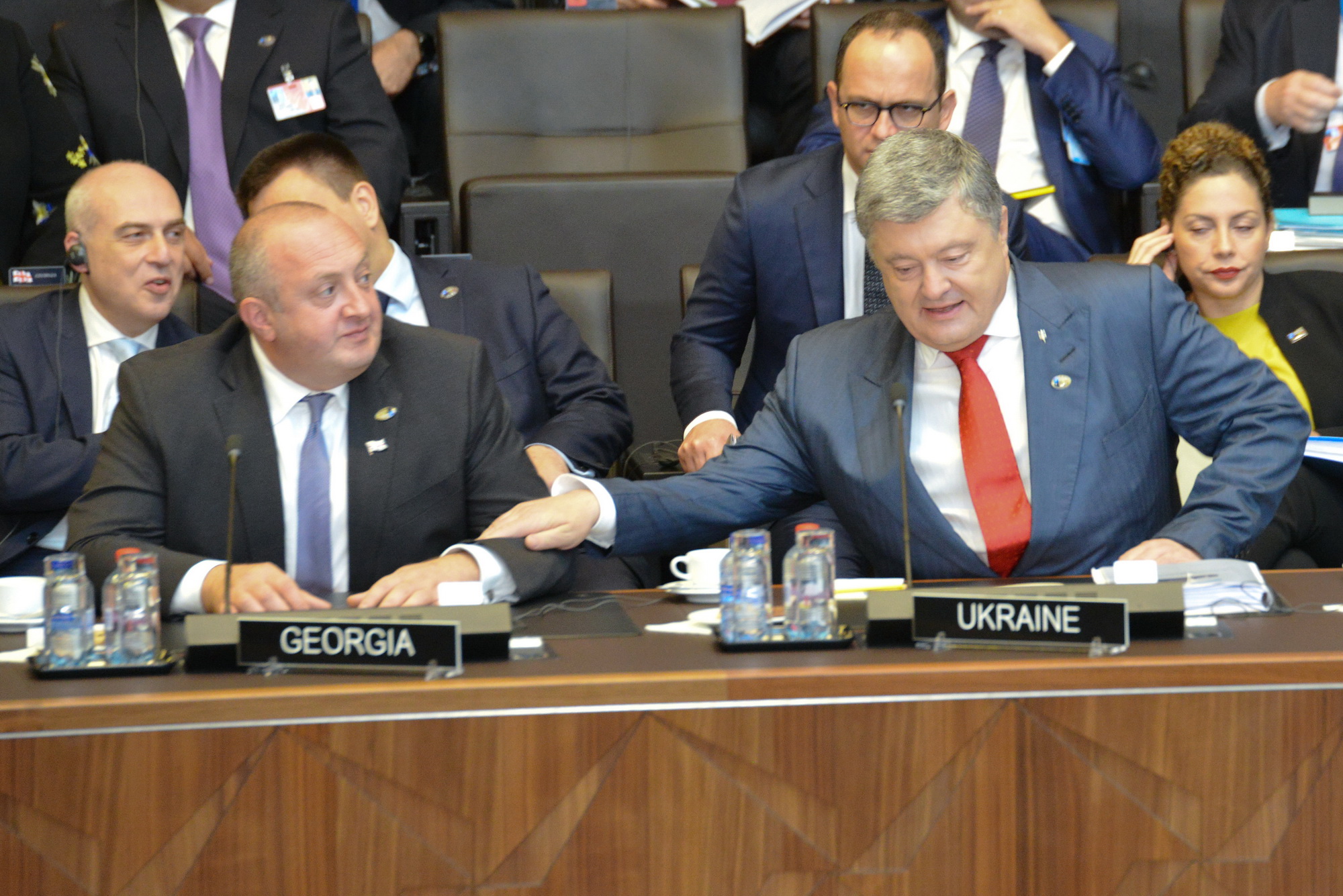BRUSSELS — The NATO Summit held on July 11-12 was unexpectedly bizarre but also among the most successful ones I’ve seen in the last 20 years. It was successful both for the alliance in general and for Ukraine in particular.
One of the figures behind that success was U.S. President Donald Trump.
Everybody wanted to see what Trump would do. He was doing what he usually does – business. In particular, he said that the United States covered 90 percent of the NATO budget and that this share is not fair. Thus, Trump again showed that he had no understanding about NATO.
The thing is, the NATO allies agreed to increase defense spending up to 2 percent of gross domestic product by 2024 during the Wales Summit in 2014. This 2 percent, however, goes not to NATO, but into the national defense budgets of the states. Even this small detail shows how little he knows about the organization.
Trump, however, initiated an unscheduled session on July 12, pressuring allies to increase the defense spending up to 2 percent of GDP in a shorter period of time. So, allies again promised to do what they already promised but now, maybe, a little bit faster. Now leaders are back in their countries and there is no guarantee that they will do so, and, by the way, this is exactly the case with the EU, when they take decisions in Brussels but back home they simply ignore it.
This move was for domestic use only and pure business for him – everything is about money and profit.
But apart from that, he did one right thing, too.
He approved the Brussels Summit Declaration, which is a key document for the future policy of NATO. He signed everything that is in there; including criticism of Russia regarding Ukraine its war, its seizure of Crimea, its destabilization, aggressive actions, cyber-warfare, disinformation, sanctions, Syria, missiles capability near NATO border and more. Therefore, now it is the official U.S. position, which is also timely considering the upcoming July 16 meeting of Trump and Russian President Vladimir Putin. Earlier Trump said that Crimea is Russia’s because everybody there speaks Russian. The Summit Declaration states something completely different; but, most likely, he did not read this 23-page document.

Ukrainian President Petro Poroshenko (C) with Georgian President Giorgi Margvelashvili (L) at the conference table during s meeting of the North Atlantic Council with Georgia and Ukraine, in Brussels, on July 12. (Iryna Somer)
Italian Prime Minister Guiseppe Conte, who claimed to review sanctions on Russia, agreed on this declaration, too, even though there is no mentioning of revision sanctions for Russia in this document.
The upshot: Brussels Summit Declaration, where leaders in strong language stated their position on Russia, is favorable for Ukraine.
Another successful outcome was connected with Hungary. Budapest is blocking the Euro-Atlantic aspirations of Ukraine over a dispute on the status of minority languages, particularly the Hungarian language. Prime Minister Victor Orban thinks this law is discriminatory against the more than 100,000 ethnic Hungarians, living mainly in southwestern Ukraine, which is only 10 percent of the population in that region. That is why a meeting between NATO leaders and the Ukrainian president as well as the joint declaration were blocked.
However, the language in the Brussels Declaration regarding Ukraine is strong, with words of support and confirming what already was promised in Bucharest in 2008, including future NATO membership. All 29 allies reconfirmed this. Declaration was issued on the first day of the Summit. A meeting between allies with Ukraine and Georgia took place early morning on the second day and was a good one.
Poroshenko might have learned from a mistake he made last year. On July 10, 2017, when the North Atlantic Council was visiting Ukraine, he said: “We think, it is necessary, and today we clearly saying that (we want) to start a discussion on Membership Action Plan, and our proposal to start such a discussion was accepted with pleasure.” It was not true, however. The NAC did not discuss it and did not say anything. To keep silent does not mean to be in agreement. The reaction at NATO headquarters on this was quite negative.
Now the main line of the Ukrainian leader has changed in the right direction. During his press conference after the Brussels Summit, when asked about MAP, Poroshenko said: “The key position of Ukraine is membership in NATO. I stand firmly on this position. Someone might be interested in the Enhanced Opportunity Partnership, somebody else in MAP, and another in something completely different. Today we have to do our homework, to make reforms.” This is exactly what allies want to hear, but most importantly, to see.
Poroshenko also said that everyone taking the floor during the meeting of NATO leaders with Ukraine and Georgia, confirmed that Ukraine has a chance to become a member. “Nineteen leaders of member states who spoke; all of them without exception said that support to Ukraine should be aimed at acceleration of the membership prospect for Ukraine”. But NATO is 29 and not 19; if other 10 did not say anything about “acceleration” it does not necessarily mean that they agree.
Yes, membership perspective is in the Brussels Declaration, agreed by all 29 members. It is an important statement but today it is easy to say so to a country which is far away from NATO membership. Now it is even not clear yet if it ever will reach it. The reform process in Ukraine is not irreversible yet despite the fact that a lot of already have been done. A lot still must be done.
